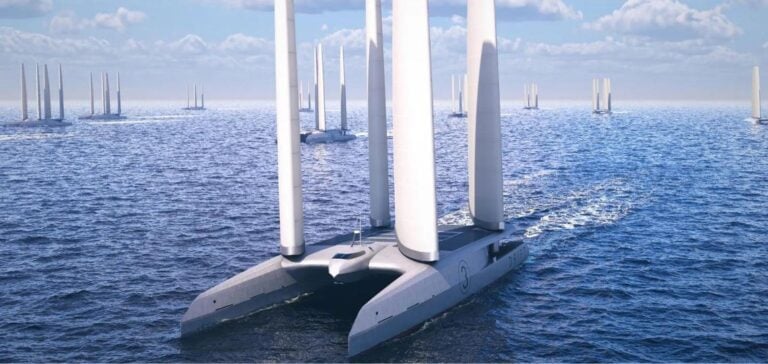UK-based DRIFT Energy has secured £4.65 million in funding to develop a fleet of autonomous yachts designed to produce hydrogen at sea.
The funding round, led by Octopus Ventures, aims to accelerate the implementation of a technology that could transform hydrogen production for industrial and marine applications.
These yachts use aerodynamic sails and underwater turbines to harness the energy available at sea and convert water into hydrogen.
This project represents an important step towards hydrogen production independent of land-based infrastructures, in response to growing demand in key sectors.
Decentralized, autonomous production
DRIFT Energy’s concept is based on hydrogen production directly at sea, with no dependence on fixed installations.
The yachts, operating autonomously, follow trajectories optimized by algorithms according to weather conditions.
After filling their hydrogen tanks, they return to port for unloading, making this model particularly efficient and flexible.
Each yacht is capable of producing up to 150,000 kg of hydrogen per year, with an installed power of 1 to 2 MW.
This model could offer a robust solution for meeting hydrogen needs in a way that is more adapted and adaptable to the realities of offshore operations.
Strengthening the project through strategic partnerships
The support of Octopus Ventures, along with that of Blue Action Accelerator, an investor specializing in the maritime economy, is crucial for DRIFT Energy.
This funding will enable the company to finalize the design of the vessels and accelerate the industrial partnerships needed to move from the development phase to large-scale operation.
The first yacht in this fleet is expected in 2025, marking a key milestone in the development of this marine technology.
Initial trials have shown positive results, placing DRIFT Energy in a strategic position in the hydrogen market.






















